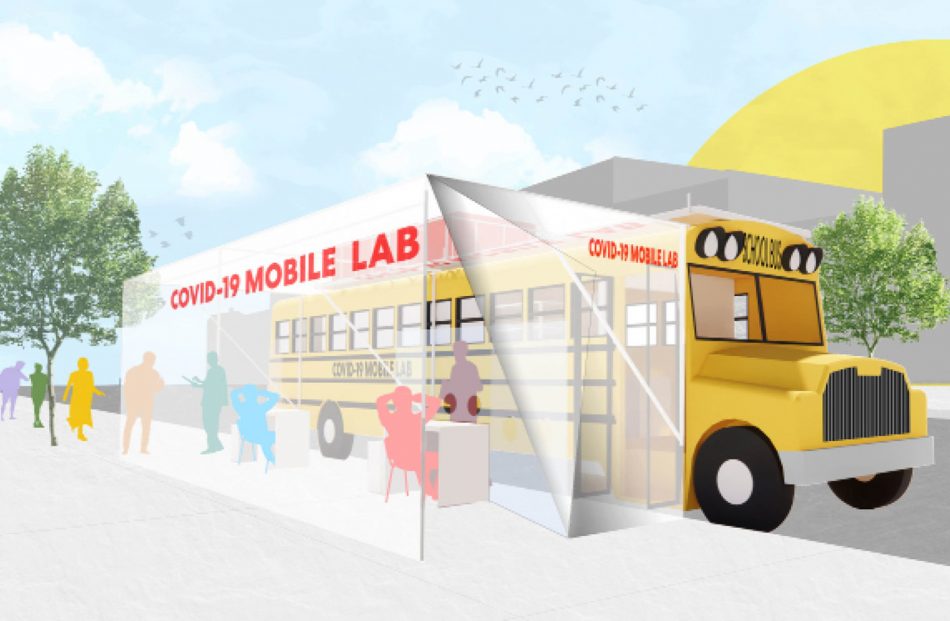In the upcoming months, as lockdown measures are slowly easing, extensive COVID-19 testing will be essential to evaluate and control the spread of the virus. But how to make it possible that everyone gets tested, especially those from lower-income and underserved communities who have been disproportionately affected by the pandemic?
In an attempt to make testing more accessible, an interdisciplinary design team, comprised of Perkins and Will, Schmidt Hammer Lassen Architects and Arup, has created a proposal for retrofitting defunct school buses into mobile COVID-19 testing labs.
Informed by the newly approved Abbott ID NOW COVID-19 test, which can deliver high-quality results in as little as 5 minutes, the design concept would outfit school buses with ID NOW rapid-testing instruments as well as sanitation infrastructure, including plexiglass shields, negative air pressure systems, and gravity-based hand washing sinks, all of which are easily obtainable and replicable.
To follow social distancing guidelines, patients would be encouraged to make appointments through a mobile app; however, smartphone access would not be a prerequisite for access.
For safety, the public would not be allowed onto the bus; a canopy and protective barrier would be installed on the side of the bus, and samples would be taken from behind a protective barrier. Samples would then be labeled and brought into the lab environment on the bus via a pass-through box.
Each lab would host two technicians who analyze the samples and upload the results to the federal government’s official database. The test samples would then be discarded together with expended materials in biohazard waste bags for safe disposal. Results would either be verbally communicated or transmitted via the smartphone app to the individual.
The retrofitted buses would draw electricity from generators mounted on the roof. Perkins and Will are presently looking for more project partners to expand on the design concept.












